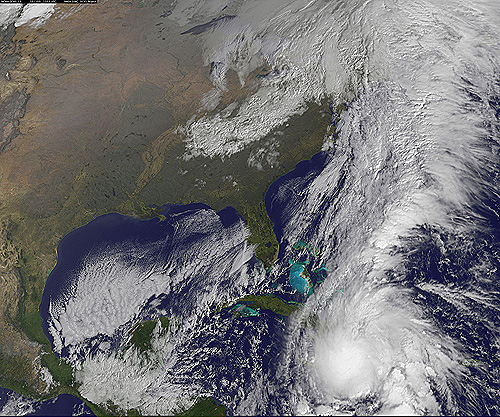Training Environmental Health Professionals in the Caribbean

Hurricane Tomas caused death and destruction in the Caribbean in 2010. (Courtesy of NASA)
Although CDC’s Environmental Health Training in Emergency Response (EHTER) began as a course intended for state, local, and tribal environmental health practitioners in the United States, interest in the training has spread to the international environmental health community as well.
In 2009, the Caribbean Environmental Health Institute (CEHI) requested a condensed course for environmental health professionals from its English-speaking member countries. In June 2010, CDC National Center for Environmental Health professionals Martin Kalis and CAPT Mark Miller collaborated with CEHI and the Pan American Health Organization (PAHO) – a regional office of the World Health Organization (WHO) – to deliver the course modules covering disaster management, responder safety, potable water, wastewater, and shelters to representatives from more than a dozen Caribbean countries in Montego Bay, Jamaica, in conjunction with the 5th Caribbean Environmental Forum and Exhibition.
Using some of PAHO’s own resources, Kalis and Miller revised and adapted the course to the environmental health structures and geographic needs of Caribbean countries. “Some of the best resources are in the countries themselves, so I look for local resources,” says CAPT Miller. “PAHO has excellent guidance documents and assessment forms for responding to floods, and I used them to adapt the course content.”
Kalis notes that international collaboration made this much-needed training possible. “The EHTER course delivered in the Caribbean last year is a great example of what can be accomplished through inter-agency and inter-organizational collaboration,” he states. In fact, the training was so appreciated that CEHI and PAHO are in talks with NCEH to deliver the full four-day course and an additional train-the-trainer course in 2012.